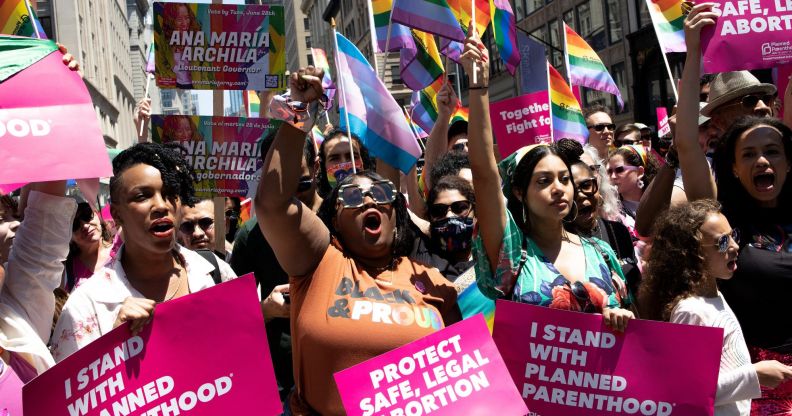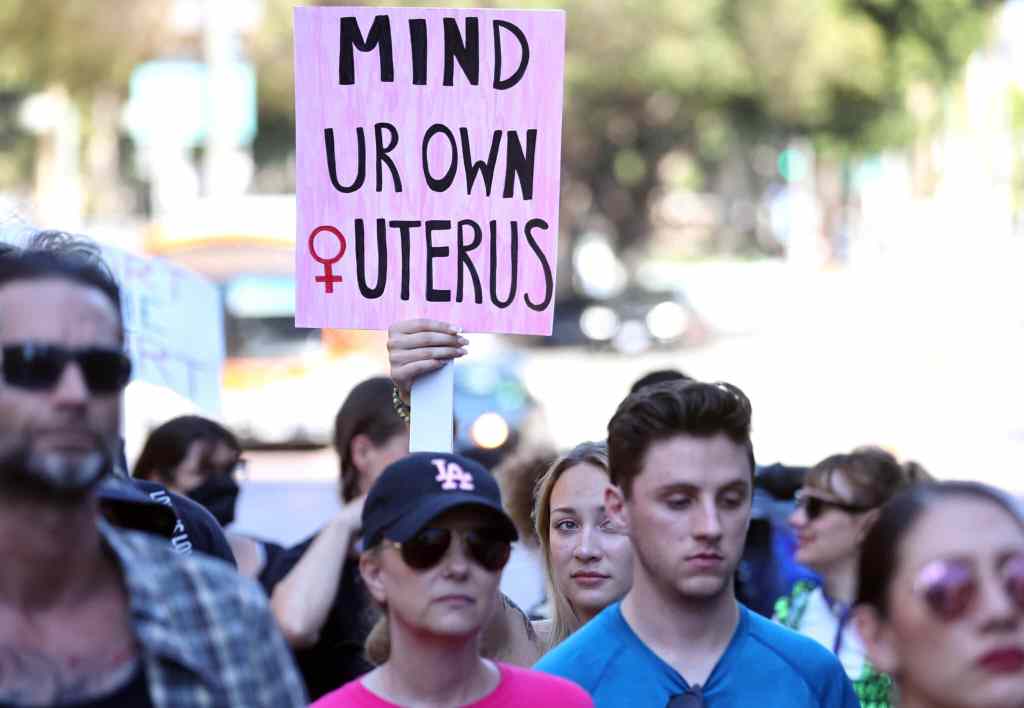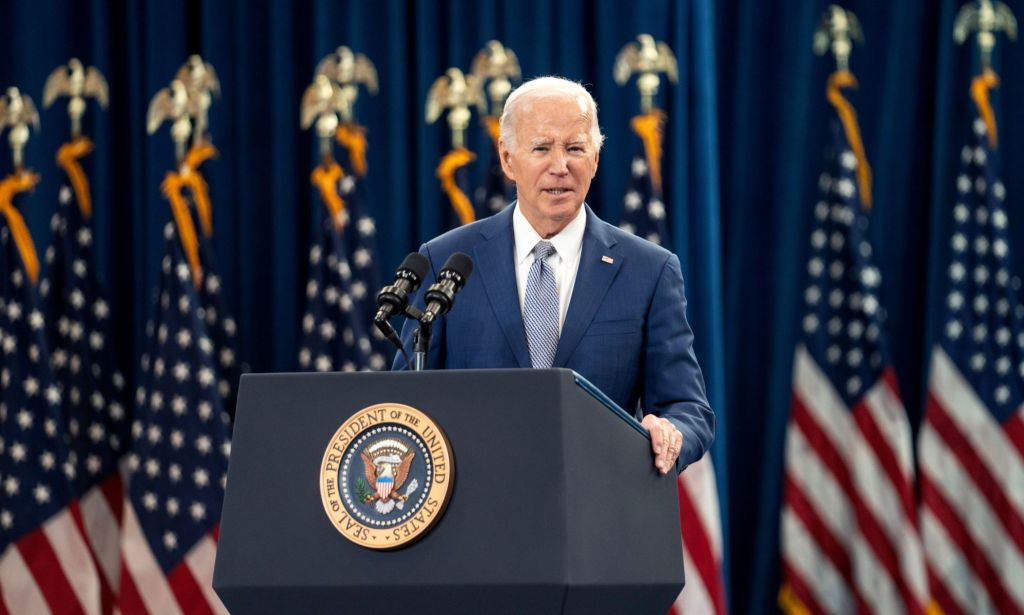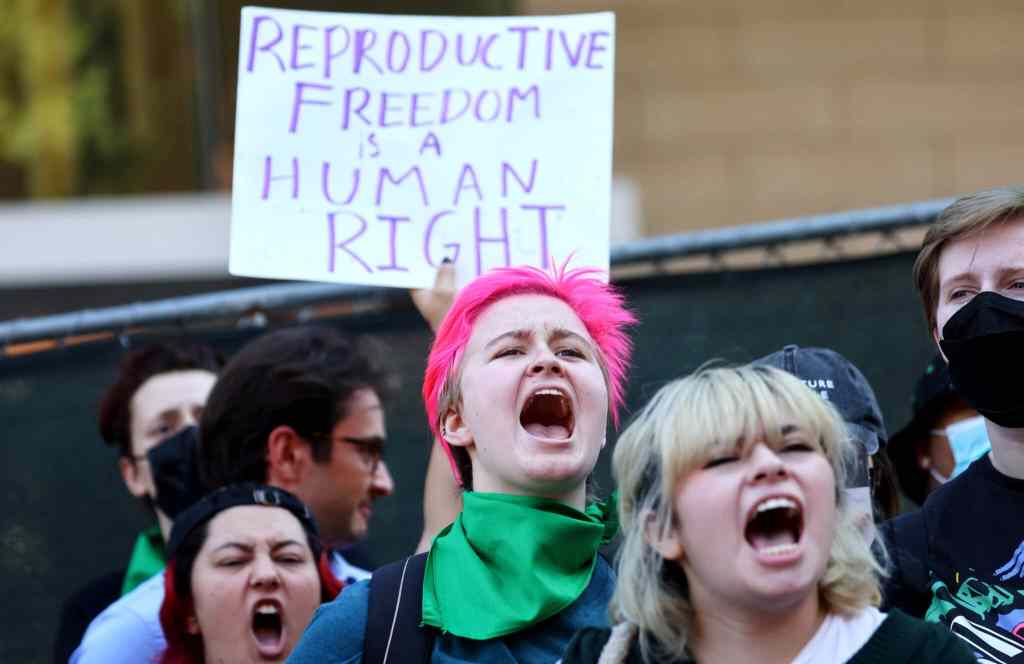This is what could happen to abortion rights under a second Donald Trump presidency

The Supreme Court overturned Roe v Wade in June 2022. (Getty)
The Supreme Court overturned Roe v Wade in June 2022. (Getty)
Donald Trump’s defeat of vice-president Kamala Harris in the race for the US presidency has left many people wondering what will happen to abortion rights after he is sworn in on 20 January.
The president-elect, who will be the first commander-in-chief to hold office with felony convictions, has previously been criticised by Harris for his “outrageous” comments on abortion.
The repeal of Roe v Wade

In 2022, during Donald Trump’s first term in the White House, the US supreme court overturned the 1973 case of Roe v Wade ruling that had legalised abortion across the US. This decision, which LGBTQ+ rights groups condemned as “extremist,” left it up to individual states to decide their own laws.
The landmark ruling was reversed after Trump appointed three conservative justices to the bench: Brett Kavanaugh, Neil Gorsuch and Amy Coney Barrett.
The American Civil Liberties Union estimated that the court’s decision would affect 36 million women.
State-level abortion laws

Since then, 21 states have enacted laws banning or restricting abortion earlier in pregnancy than the standard previously set.
Tracking by The New York Times showed that several states have full or partial bans in place.
States where abortion is banned in almost all circumstances include Alabama, Arkansas, Idaho, Indiana, Kentucky, Louisiana, Mississippi, Missouri, Oklahoma, South Dakota, Tennessee, Texas and West Virginia.
A gestational limit (which defines the point within pregnancy when abortion is permitted) has been set in states such as Florida, Georgia, Iowa, and South Carolina, where abortion is banned after about six weeks. In Nebraska and North Carolina, the limit is 12 weeks, while in Arizona it is 15 weeks, and in Utah 18. Utah’s restriction is on hold due to an ongoing lawsuit.
In the UK, abortion is permitted up to 24 weeks, and beyond that for medical reasons only.
What Donald Trump has said about abortion bans

In an interview in April, Trump said he would not interfere in local decisions on abortion policy, even if states were to monitor pregnancies and prosecute those who violate bans.
This would effectively reinforce abortion as a criminal offence rather than a healthcare issue between a person and their doctor.
During the interview with Time magazine, Trump declined to commit to a veto on federal abortion restrictions if they were proposed in his second term. “I’m leaving everything up to the states,” he said. “I don’t have to do anything about vetoes because we now have [the decision to outlaw abortion] in the states.”
In 1999, Trump was pro-choice, saying: “I hate the concept of abortion… but still, I believe in choice.” However, his stance shifted during the 2016 presidential campaign, when, The Washington Post reported, he suggested that women who undergo illegal abortions should face “some sort of punishment.”
Fundraiser launched to support US following Donald Trump’s victory

In response to the election outcome, the British Pregnancy Advisory Service (BPAS) has launched a fundraising campaign, with 30 per cent of proceeds going to the Brigid Alliance, which provides logistical support to people seeking an abortion, including help with travel, food, lodging and childcare.
The target is £30,000 ($23,000) and the total so far is more than £3,700 ($2,850), with contributions from some 130 supporters.
The campaign’s JustGiving page says: “Abortion access is not a privilege to be granted or revoked by political leaders, it is a fundamental human right owed to every woman.”
Heidi Stewart, the chief executive of BPAS, which supports more 100,000 women a year with reproductive healthcare services, expressed solidarity with “every woman feeling fear, anger and uncertainty.”
She went on to say: “It’s no coincidence that, alongside the anti-abortion movement’s fight to overturn Roe v Wade, the UK has seen record-high police investigations into abortion-related offences and the most significant parliamentary attempt to restrict abortion access in decades.
“Anti-abortion activists are increasingly emboldened in their attempts to strip women of their rights, dignity and futures.”
She thanked abortion providers in the US and insisted that BPAS would remain “relentless” in its fight for women’s rights, saying: “We owe it to women across both sides of the Atlantic and around the world.”
BPAS provides pregnancy counselling, abortion care, miscarriage management and contraception at clinics across the UK.
Donations to Stand with BPAS: Protect Abortion Rights in the UK and USA can be made here.
Share your thoughts! Let us know in the comments below, and remember to keep the conversation respectful.

